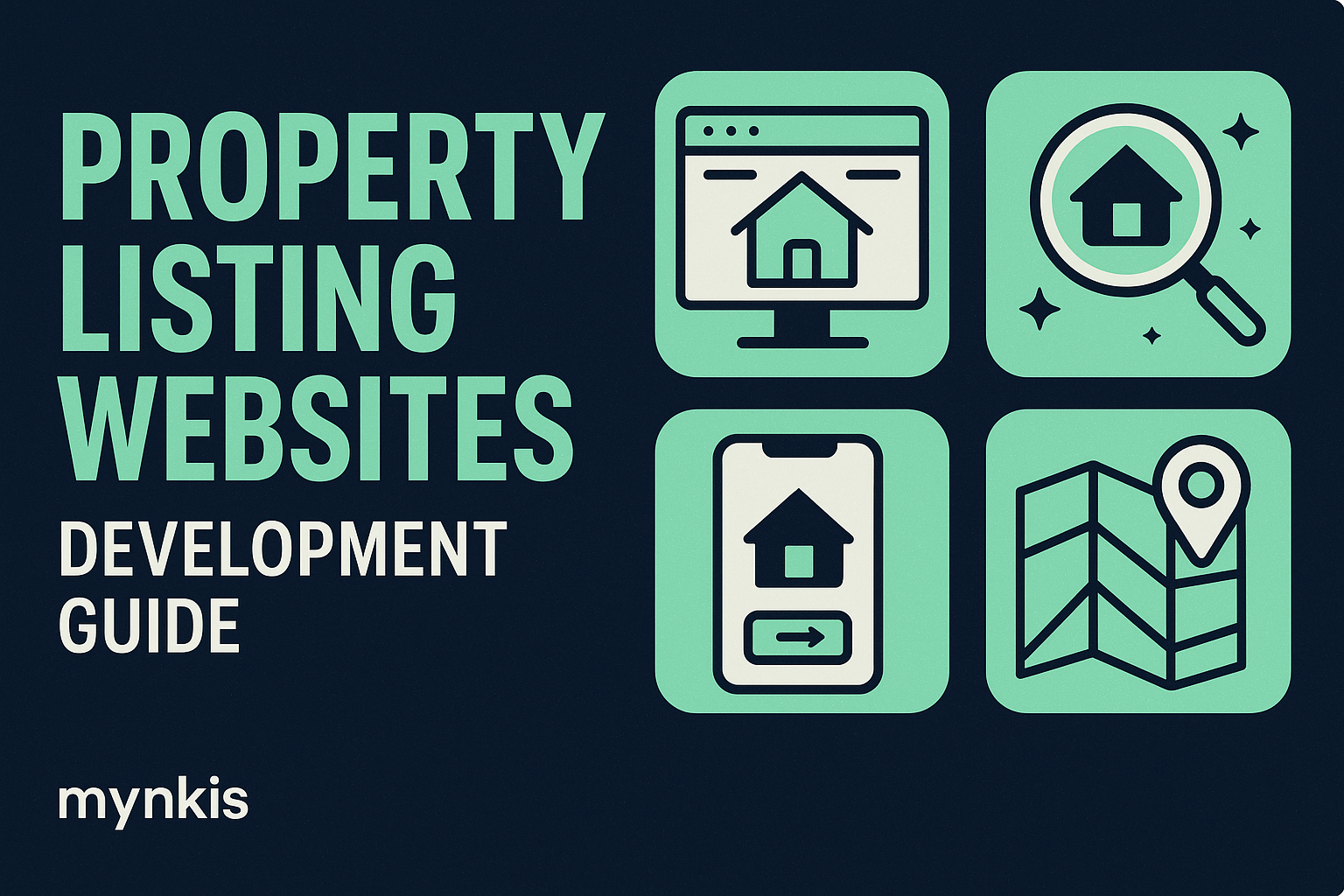Schedule a Demo
When setting out to build a property listing website, understanding the unique needs of brokers seeking to enhance their search rankings for local queries is paramount. It's not just about creating an aesthetically pleasing site; it’s also about capturing the essence of local real estate markets through sophisticated SEO strategies tailored for real estate professionals. I've often worked with brokers who are keen on discovering how their online platforms can do more than just list properties—they want these sites to work tirelessly to pull in qualified local traffic.
Choosing the right technology stack is a critical first step. A robust custom software development solution can integrate seamlessly with existing tools brokers already use, such as CRM systems or marketing platforms. Laying a foundation on scalable technologies like Node.js or React can ensure your platform evolves alongside the growing needs of real estate firms while maintaining optimal performance and user experience. My experience in software development tells me this step sets the tone for the entire project.
Brokers are highly focused on driving local traffic. Therefore, SEO features must be tightly woven into the fabric of the website. Start with optimizing for local search terms and make sure you have listings that boast thorough, accurate location data. Beyond this, utilizing schema markup to highlight property details in search results can significantly elevate a site's click-through rate. The secret sauce lies in not just applying these SEO tactics, but in constantly refining and adapting them to the ever-changing algorithms of search engines.
With a significant portion of users browsing property listings from mobile devices, responsive design isn't just an option—it's a necessity. I remember a project where we noticed a spike in mobile traffic after optimizing the user interface for smartphones. If you're catering to busy brokers and their clients, your website needs to offer seamless navigation and an intuitive experience across all devices. This not only caters to user preferences but also signals positive mobile SEO metrics to search engines.
For a property listing platform to truly shine, it must be powered by a robust backend system. Whether you’re leveraging custom API development for dynamic property listings or integrating a third-party CRM, the goal is seamless data management. Broker clients don’t just want listings; they need a tool that assists in their day-to-day operations, from managing clients to streamlining contract processes. A backend built on your custom software development ensures that brokers have the tools they need at their fingertips.
Another integral piece of the development puzzle is understanding user behavior through analytics. You can improve SEO and user experience iteratively by keeping a close watch on metrics like dwell time, bounce rates, and conversion paths. Providing broker clients with these insights gives them the power to make data-driven decisions about their online strategy. I'm confident when I say that a data-centric approach can turn a good website into a great one.
Content is king, even in real estate. Your approach to content strategy should focus on unique, valuable information that appeals to the local market of interest. Whether it's neighborhood guides, market trends, or advice columns on buying and selling, well-crafted content can significantly enhance both SEO rankings and user engagement. Years of creating content for various niches have taught me to never underestimate the power of well-tailored content within specific geographic niches like real estate.
Nothing erodes user trust faster than security vulnerabilities. Secure your property listing website with SSL certificates and robust, up-to-date security protocols. Leveraging secure custom software development not only protects your clients’ data but also can improve SEO since search engines prioritize secure sites. Trust me, overlooking website security can be a costly mistake for any broker's online presence.
A sustainable property listing website should be built with the flexibility for easy updates and user contributions. Whether it’s enabling brokers to add or modify listings swiftly or allowing visitors to submit inquiries directly through the site, an intuitive admin panel and clear action flows are critical. My approach to enterprise web solutions always includes crafting user-friendly interfaces that enable such smooth integration with day-to-day broker operations.
Incorporating social media into your property listing site is no longer optional but expected. Users today want to share their findings, connect with real estate agents, and engage on multiple platforms. As I've worked through multiple development projects, setting up seamless integration with social media, including easy sharing options and direct outreach, has consistently increased website stickiness and brand exposure. Brokers looking to expand their digital footprint need these integrations more than ever.
Ensuring the website adheres to accessibility standards not only widens your audience reach but can also indirectly influence SEO. Combining accessibility with full compliance with laws like the Americans with Disabilities Act can be a competitive edge. I've found that adhering to principles of accessible design both enhances the reach of real estate brokers and ranks favorably with algorithms tuned for inclusion.
Before going live, comprehensive testing and optimization are indispensable. From functionality and usability to SEO audits, each element of the website needs to be scrutinized. I've seen all too often where minor glitches or optimization issues have major impacts post-launch. It's about having the detailed craftsmanship to ensure every component of your property listing platform functions seamlessly upon entering the competitive market of online real estate.
Finally, the introduction of live chat can transform a broker's website into a proactive service hub. Immediate engagement can make all the difference in user satisfaction and conversion rates. Integrating a custom solution for real-time interactions with prospective clients brings a level of professionalism and efficiency that can set a property listing website apart from the masses. From my vantage point, this interactive feature addresses the dynamic need of busy, on-the-go clients looking to find or sell their next property with ease.
